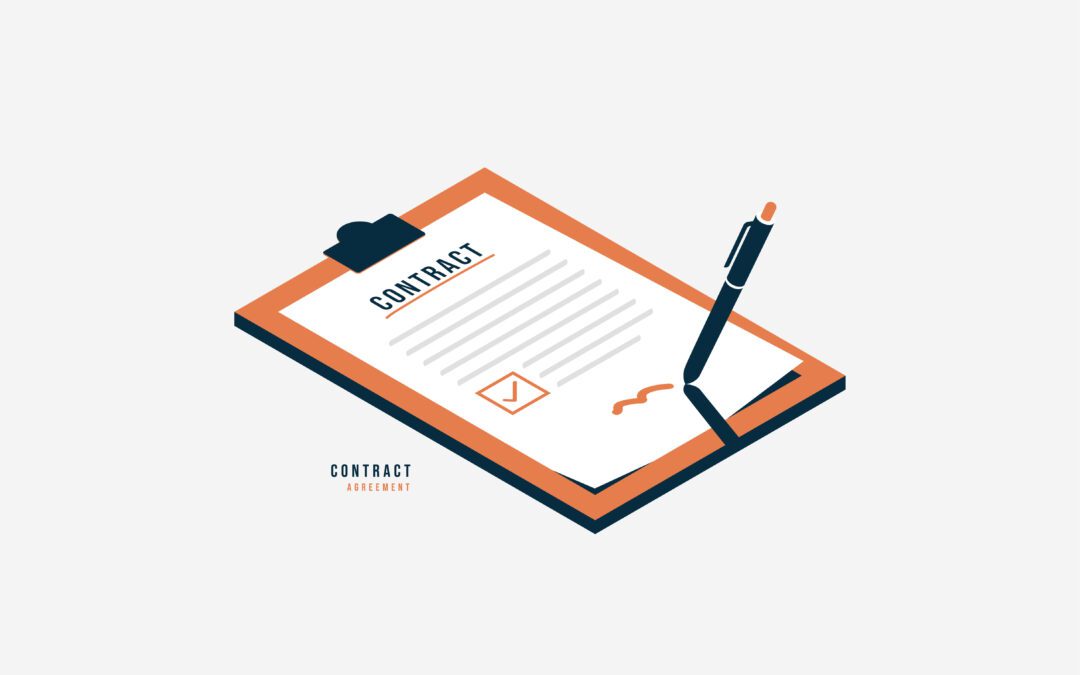Common Contract Mistake #1. Not Having Written Agreements with EVERYONE You Do Business With.
Common contract mistake. Without question, the most common contract mistake is not having the terms of an agreement memorialized in a written document. I am often taken aback by the reasoning of someone who doesn’t have a written contract with everyone they do business with. But regardless of how reasonable their beliefs, it’s still a bad idea. There is no good reason for not reducing business relationships to writing. Just ask anyone who has ever been on either side of a breach of contract lawsuit, where there was no documentation.
Here are just a few of the reasons I hear for clients not having written agreements:
- “We do things with a handshake.”
- “It’s my family.”
- “We’re friends.”
- “God forbid they should think I don’t trust them.”
- “Lawyers are so expensive.”
- “I trust the person.”
Why should you reduce ALL business relationships to writing:
- Memory rarely serves anyone over 16.
- Expectations are clearly defined.
- “He said, she said” is an unpredictable game to play.
- Properly drafted agreements avoid ambiguous and vague language.
- You have a paper trail in the event of a challenge.
Common Contract Mistake #2. Not Reading AND Understanding Agreements Before Signing.
Have you ever signed something without reading it first? Have you ever signed something that you read and thought you understood, but later discovered you were mistaken? Most of you will be quick to say, “Not me, I read everything,” or “Of course, I understand what I sign.” Well, the lawyer in me is going to challenge those beliefs. Here’s why. If you have clicked “I Accept” when asked to read the Terms of Use (or any variation thereof) and you didn’t read what they said, then you have entered into a binding agreement without reading it.
Here are some of the types of agreements people sign, but don’t read.
- Terms of Use / Terms of Service / Terms and Conditions
- Privacy Statements
- Work for Hire
- Licensing Agreements
- Car rental Agreements
- Apartment Leases
- Estate Documents (Wills, Trusts, Powers of Attorney, Healthcare Directives, Deeds)
- Loan Agreements
- Promissory Notes
- Copyright Transfer Agreements
- Publishing Agreements
- Literary Agency Agreements
- Pre-, Post-Nuptial Agreements
- Settlement Agreements
- and much more!
Why don’t people read and understand documents before signing?
- You are in a rush
- You trust the other person
- It’s family
- It’s a friend
- The document is too long
- It’s too complicated with much legalese
- Someone will think you don’t trust them
- You feel rushed into signing
- You think you understand what you are signing, even when you don’t
- You are under the influence of alcohol or drugs
- You are just lazy
Common Contract Mistake #3. Not Vetting Templates Before Using Them.
Have you ever downloaded a template from the Internet and used it as you found it? Have you ever received a sample document from a friend or colleague and used it as is? Have you ever taken the time to customize those documents to your specific needs, or taken it to a lawyer to vet? At one time or another, most of us have used Internet templates or out-of-the-box contracts without conforming them to our specific needs. Regardless of your reason for doing so, using documents that have not been customized is a bad idea. Here is why:
- Contrary to popular belief, one size does NOT fit all.
- Contract Law is state law, and each state has its own set of rules.
- The Law changes frequently, so what might have applied last year or 5 years ago, will likely not apply today.
- Often there are contradictory clauses within the same agreement that you are unaware of.
- You might inadvertently give away important rights, e.g., intellectual property rights.
- Contracts often include terms of art that certain lawyers (or industries) might use.
Common Contract Mistake Take Away.
Common contract mistake take aways. Since anything and everything can be changed with a contract, it’s important to understand that all contracts should be carefully read, understood, and reduced to writing. And know this, if you sign it, you will be responsible for it. So:
- Get it in Writing.
- Read it.
- Understand it.
- Vet it.

Francine D. Ward
Attorney-At-Law, Author, Speaker
Follow Francine:
Don’t miss Francine’s Latest Blogs:
- Publishing contractsPublishing contracts The publishing contract is an agreement that defines the relationship between an author and her publisher. Publishing contracts typically contain elements that speak to territory, rights, ownership, financial… Read more: Publishing contracts
- What is a Habit?As we enter springtime, you may feel far away from your New Year’s resolution. That may be because of the success rate of NYE resolutions. In fact, January 17 is… Read more: What is a Habit?
- Common Contract MistakeCommon Contract Mistake #1. Not Having Written Agreements with EVERYONE You Do Business With. Common contract mistake. Without question, the most common contract mistake is not having the terms of… Read more: Common Contract Mistake
- AI and PatentsAI and Patents. Understanding Patent Law in the Age of AI. Patents, along with Copyrights, Trademarks, Trade Secrets, and Rights of Publicity, are one of the five areas of practice… Read more: AI and Patents
- Effective Goal SettingSetting Goals. It’s that time of year, time to plan for effective goal setting. A time when some of us start thinking about goals for the upcoming year. If you… Read more: Effective Goal Setting











